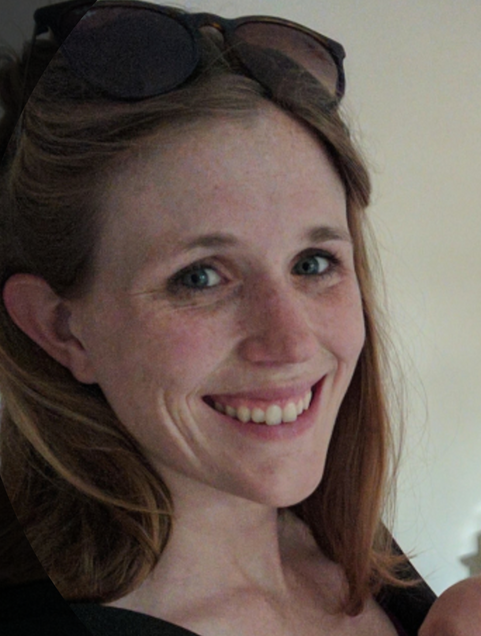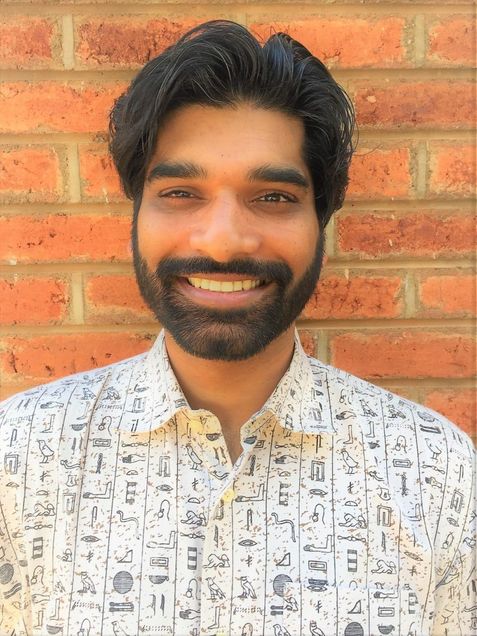Global Health Research Seminar Series – Fall 2017.
Join the Global Health Department as we host weekly research seminars open to the SPH community. The speakers are a combination of our own GH Department faculty and staff as well as colleagues and friends of the GH Department. Come hear the work of these researchers who’s impact stretches across the world!
Presentation titles are still being gathered, thank you for your patience as we work on putting our schedule together!
Mondays from 1:00-2:00pm
Room: CT-305
801 Massachusetts Ave.
 September 11th
September 11th
Taryn Vian, PhD, MSc
Professor, Boston University School of Public Health
Rich Feeley, JD
Associate Professor, Boston University School of Public Health
Health Corruption Risk Assessments in 5 former Soviet countries.
This study documented the routes by which corrupt activities can influence medicine cost, access, and quality in Armenia, Belarus, Georgia, Moldova and Ukraine. The researchers will describe some of the questionable operating procedures, conflicts of interest, and excessive secrecy provisions which create risks, and describe interventions to strengthen health systems to reduce corruption.

September 18th
Kate Clouse, PhD, MPH
Assistant Professor, Vanderbilt Institute for Global Health
Patient engagement in care: lessons from HIV-positive, postpartum women in South Africa
Sustaining consistent levels of patient engagement in care can be challenging across many facets of healthcare. In the past decade, HIV research has advanced our understanding of the magnitude of loss throughout the continuum of care, barriers and facilitators of engagement in care, and interventions to improve engagement. Dr. Kate Clouse, Assistant Professor at the Vanderbilt Institute for Global Health, will present her work from South Africa exploring implementation science methods to improve engagement in HIV care, particularly among postpartum women. Dr. Clouse is a frequent collaborator with BU researchers, including Dr. Matt Fox, Dr. Lawrence Long, Dr. Alana Brennan, and the Health Economics and Epidemiology Research Office in Johannesburg, South Africa.
 September 25th
September 25th
Karen Jacobson, MD, MPH
Assistant Professor, Boston University School of Medicine
Using routinely-collected laboratory data to identify communities with high rifampicin-resistant tuberculosis burden in the Western Cape Province, South Africa: a retrospective spatiotemporal analysis
South Africa has the highest tuberculosis incidence globally (834/100,000), with an estimated 4·3% rifampicin resistance (RR). We aimed to create a surveillance system that could regularly monitor drug resistance and identify high burden communities in the Western Cape Province using routinely collected laboratory data. We retrospectively identified microbiologically-confirmed and RR- tuberculosis cases from all biological samples submitted for tuberculosis testing (n=1,865,965) to the Western Cape National Health Laboratory Services (January 2008-June 2013). We aggregated cases by clinic location (n=331) to estimate the proportion of rifampicin resistance among tuberculosis cases (“RR-tuberculosis proportion”) per clinic. We used inverse distance weighting to map the RR-tuberculosis proportion across the province and estimated and mapped annual changes in the RR-tuberculosis proportion by clinic. Spatial heterogeneity existed between clinics, with the RR-tuberculosis proportion ranging from 0% to 23%. Our maps revealed significant year-on-year fluctuations in RR-tuberculosis proportions at several locations. Additionally, the directions of change in RR-tuberculosis proportion were not uniform. Our maps revealed striking spatial and temporal heterogeneity in RR-tuberculosis proportions across this province. This demonstrates the potential to monitor RR-tuberculosis spatially and temporally with routinely collected laboratory data, enabling improved resource targeting and locally-appropriate interventions.

October 2nd
Chanmin Kim, PhD
Assistant Professor, Biostatistics, Boston University School of Public Health
Bayesian Methods for Causal Mediation: Causal Inference in the Analysis of Power Plant Emission Controls
Emission control technologies installed on power plant smokestacks are a key feature of many air pollution regulations in the US. While such regulations are predicated on the presumed relationships between emissions, ambient air pollution, and human health, many of these relationships have never been estimated or empirically verified amid the realities of actual regulatory implementation. The goal of this paper is to develop new statistical methods to quantify these relationships. We frame this problem as one of mediation analysis to evaluate the extent to which the effect of a particular control technology on ambient pollution is mediated through causal effects on power plant emissions. Since power plants emit various compounds that contribute to ambient pollution, we develop new statistical methods for settings with multiple intermediate mediating factors that are measured contemporaneously, may interact with one another, and may exhibit joint mediating effects. Specifically, we propose new methods leveraging two related frameworks for causal inference in the presence of mediating variables: principal stratification and causal mediation analysis. We define principal effects based on multiple mediators, and also introduce a new decomposition of the total effect of an intervention on ambient pollution into the natural direct effect and natural indirect effects for all mediating emissions jointly, each pair of emissions, and each emission individually. Both approaches are anchored to the exact same model for the observed data, which we specify with flexible Bayesian nonparametric techniques. We provide assumptions for estimating principal causal effects, then augment these with an additional assumption required to conduct a causal mediation analysis relying on natural direct and indirect effects. The principal stratification and causal mediation analyses are interpreted in tandem to provide the first comprehensive empirical investigation of the presumed causal pathways that motivate a variety of air quality regulatory policies.
Further causal inference methods and applications will be discussed.

October 16th
Brooke Nichols, PhD, MSc
Health Economist, HE2RO University of the Witwatersrand
Sustainable viral load scale-up for HIV monitoring in Zambia: Geospatial optimization modeling
While viral load testing is the recommended method for monitoring the treatment of HIV-infected patients, access in many countries remains poor due to various challenges. In Zambia, currently only 30% of patients are accessing viral load monitoring due to the lack of sample transportation and insufficient viral load instruments. To address these barriers, a geospatial cost model was created by combining GIS information on healthcare facilities, laboratories, sample volumes, drive times and a detailed costing. The presentation will discuss this modeling approach, and respective results, that aimed to design a sustainable sample transport network and optimize the location of new viral load instruments in Zambia.

October 23rd
Patrick Kinney, PhD
Beverly Brown Professor of Urban Health, Boston University School of Public Health
Intervening to Reduce Exposures to Cook-Smoke and Improve Infant Health in Rural Ghana
I will describe a randomized trial testing whether provision of cleaner-burning cookstoves by the second trimester of pregnancy can reduce exposure to household air pollution and improve infant health outcomes, including birth weight and ALRI in the first year of life.
 October 30th
October 30th
Clarissa Valim, MD
Visiting Scientist, Harvard T.H. Chan School of Public Health
Challenges in Analysis of Biomarker Studies
In the last years, considerable effort has been invested in designing more reliable studies aiming to seek single and composite biomarkers for diagnosis, prognosis, and correlated with naturally and vaccine induced immunity. Several analytical tools are regularly used in these studies to calibrate assays and to select and combine markers. In spite of that, identified biomarkers still often fail to be validated in subsequent studies partially because of challenges in analytical approaches. We will discuss some challenges in these studies, including difficulties with re-sampling approaches, such as cross validation.
 November 6th
November 6th
Sydney Rosen, MPA
Research Professor
Simplifying HIV treatment initiation in the SLATE trial in South Africa and Kenya: preliminary results and future plans
Researchers from the Department of Global Health at BUSPH, the Health Economics and Epidemiology Research Office (HE2RO) in South Africa, and the Kenya Medical Research Institute (KEMRI) in Kenya are implementing a trial of a simple, fast procedure for initiating antiretroviral therapy for HIV patients. The “Simplified Algorithm for Treatment Eligibility” (SLATE) study has completed enrollment in South Africa and is currently enrolling Kenya. We will present initial results for South Africa and discuss the follow-on study (SLATE II) that is now being designed.
 November 13th
November 13th
Martha Vibbert, PhD
Assistant Professor, Boston University School of Medicine
Director of the SPARK Center
Universal Baby and Intervention for Early Childhood Development (ECD): How to get to scale?
International longitudinal research in developmental psychology, as well as research in developmental neuroscience have established the importance of ‘nurturing care’ and responsive early stimulation for healthy neurodevelopment during the critical earliest years of life. Investments in ECD yield dividends in children’s later capacity for learning and emotional resilience. How do we translate this evidence into scalable and cost-efficient intervention for application across the globe while honoring cultural variation in childrearing values, beliefs and traditions? How do we measure ECD intervention? How do we engage in ECD implementation science?
 November 20th
November 20th
Lora Sabin, PhD, MA
Associate Professor, Boston University School of Public Health
Lisa Messersmith, PhD, MPH
Associate Professor, Boston University School of Public Health
In search of improved ART retention and adherence: key findings from the Uganda WiseMama study

November 27th
Mahesh Karra, M.Sc, Sc.D
Assistant Professor of Global Development Policy, Frederick S. Pardee School of Global Studies at Boston University
Understanding and Measuring the Impact of Distance on Health Evidence from Two Studies
My presentation will try to understand the role of distance on health and well-being using both theoretical and empirical approaches. My presentation will aim to:
a. Understand how distance is related to utilization and health (child mortality)
b. Explore measurement error and inference problems with mismeasured distance data (and, more generally, with data with deliberately induced measurement error)
c. Propose a methodological solution to these measurement and inference problems

Chris Gill
Associate Professor, Boston University School of Public Health
The impact of a revised mobile continuing medical education intervention on Vietnamese HIV clinician's self-study behaviors, medical knowledge, and job satisfaction: results from a randomized controlled trial











